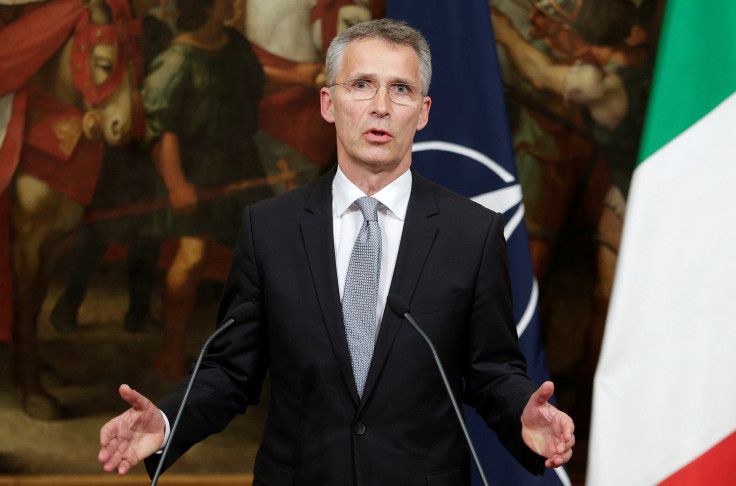Amid Russian Aggression, NATO May Bolster Cyber Defense, Increase Warfare Domain

Cyberspace is likely to join air, sea, land and space as an official warfare domain when the NATO military and political alliance meets in Warsaw for a summit next month. German Maj. Gen. Ludwig Leinhos said Wednesday he expects all 28 members of NATO to agree to the change as cyberthreats continue to menace the alliance and individual members.
Leinhos, who is in charge of strengthening Germany’s individual cybercommand, said he would like to see all NATO members work to further boost cybersecurity, Reuters reported. For the first time since the Cold War ended, Germany is expanding its own military to deal with cyberthreats and overseas operations. The United States declared cyberspace a warfare domain in 2011.
NATO’s European members are increasing their defense spending for the first time in years, Secretary-General Jens Stoltenberg said this week. Russia’s assertive actions in Eastern Europe and its annexation of Crimea from Ukraine in 2014 have led to greater military spending in Central and Eastern Europe.
“The forecast for 2016, based on figures from allied nations, indicates that 2016 will be the first year with increased defense spending among European allies for the first time in many, many years,” Stoltenberg told the Financial Times. “We are faced with uncertainty. We are faced with more threats, more security challenges, than in a generation.”
Latvia’s defense spending has increased by more than 50 percent while Lithuania’s jumped in excess of 35 percent. Both Poland and Estonia have also increased their defense spending contributions. During the July Warsaw summit, an official agreement on the stationing of four NATO battalions in Poland and the Baltic states is expected, with exact locations and battalion sizes determined.
The Warsaw summit would also focus on “countering hybrid threats” and “cyber defense,” NATO said in a statement.
“NATO is adapting to other existing and emerging challenges too,” Stoltenberg said Tuesday in Warsaw. “We are improving our resilience. Our ability to resist — and to recover from — hybrid and cyberattacks.”
© Copyright IBTimes 2025. All rights reserved.





















